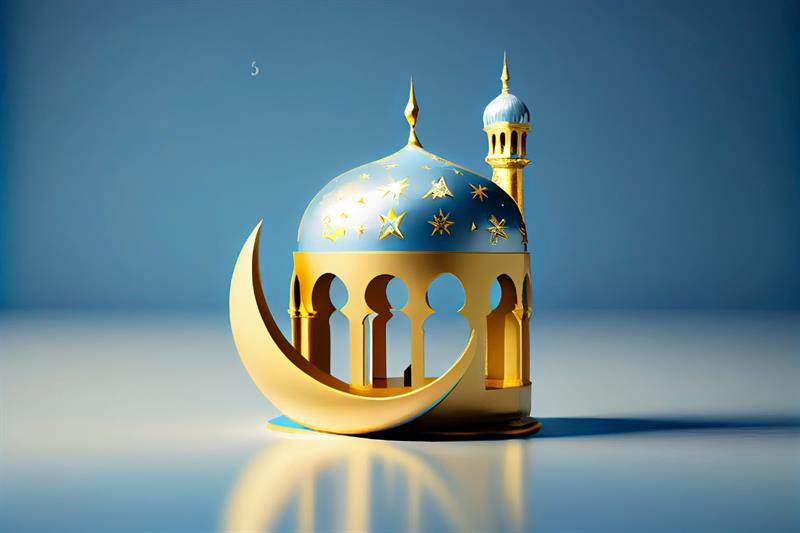EID-UL-ADHA AND EID-UL-FITR, WHAT IS THE DIFFERENCE?
|
|

Eid-ul-Adha and Eid-ul-Fitr are two important festivals celebrated by Muslims worldwide. These festivals hold great significance in Islamic culture and are marked by communal prayers, feasts, and acts of charity. While both festivals are joyous occasions, they have distinct origins, rituals, and purposes. In this blog, we will explore the differences between Eid-ul-Adha and Eid-ul-Fitr, shedding light on their unique characteristics and cultural importance.
Eid-ul-Fitr:
Eid-ul-Fitr, also known as the "Festival of Breaking the Fast," marks the end of the holy month of Ramadan. Ramadan is a period of fasting, prayer, self-reflection, and increased devotion for Muslims worldwide. The festival of Eid-ul-Fitr is a celebration of successfully completing the fasting month and expressing gratitude to Allah for the strength and blessings received throughout Ramadan.
-
Spiritual Significance: Eid-ul-Fitr holds immense spiritual significance for Muslims as it symbolizes purification, self-discipline, and the renewal of faith. It is a time of joy, forgiveness, and strengthening communal bonds.
-
Festive Customs: On the day of Eid-ul-Fitr, Muslims wake up early, cleanse themselves, and wear new clothes. They gather in mosques or open spaces for special prayers known as "Eid Salah." The sermon delivered during the prayers emphasizes the importance of gratitude, unity, and acts of kindness. After the prayers, Muslims visit friends and family, exchange gifts, and enjoy festive meals together. It is also customary to give "Zakat al-Fitr," a form of charity, to those in need before the prayers.
-
Culinary Delights: Eid-ul-Fitr is synonymous with delicious food and sweet treats. Traditional dishes vary across different cultures, but common delicacies include biryani, kebabs, samosas, and an array of mouthwatering desserts like sheer khurma, baklava, and gulab jamun.
Eid-ul-Adha:
Eid-ul-Adha, also called the "Festival of Sacrifice," commemorates the willingness of Prophet Ibrahim (Abraham) to sacrifice his son as an act of obedience to Allah's command. As the story goes, just as Ibrahim was about to sacrifice his son, Allah replaced the boy with a ram, signifying the importance of faith and submission.
-
Religious Significance: Eid-ul-Adha is observed to honor Ibrahim's devotion to Allah and symbolizes the willingness of Muslims to sacrifice for the sake of their faith. It serves as a reminder of the values of selflessness, obedience, and devotion to Allah.
-
Rituals and Traditions: The highlight of Eid-ul-Adha is the ritual of animal sacrifice, known as "Qurbani." Muslims who can afford it sacrifice an animal, usually a sheep, goat, cow, or camel, following specific guidelines and distribution protocols. The meat from the sacrificed animal is divided into three parts: one for the family, one for relatives and friends, and one for the less fortunate. This act of sharing and generosity promotes social harmony and empathy.
-
Community Gathering: Similar to Eid-ul-Fitr, Eid-ul-Adha brings communities together. Muslims attend congregational prayers in mosques or open fields, where they listen to sermons highlighting the significance of sacrifice, compassion, and unity. Following the prayers, people exchange greetings, visit loved ones, and share meals.
Conclusion:
Eid-ul-Fitr and Eid-ul-Adha, although both celebrated with great enthusiasm and devotion, have distinct origins, rituals, and focuses. Eid-ul-Fitr marks the end of Ramadan, celebrating the achievements and blessings received during the month of fasting, while Eid-ul-Adha commemorates the sacrifice of Prophet Ibrahim and emphasizes selflessness, obedience, and devotion to Allah.
Both festivals promote acts of kindness, charity, unity, and gratitude. They serve as reminders of the core values of Islam, bringing Muslims together in celebration and reinforcing their faith. By understanding the differences between these two significant festivals, we can appreciate the rich diversity within the Muslim community and foster intercultural understanding and harmony.
Kind Regards
Julius Czar
Author: Julius Czar
Company: Zillion Technologies Ltd
Mobile: +256705162000 / +256788162000
Email: Julius@RealEstateDatabase.net
Website: www.RealEstateDatabase.net
App: Install the RED Android App
|
|
|
OTHER PAGES:
|
|
|
|